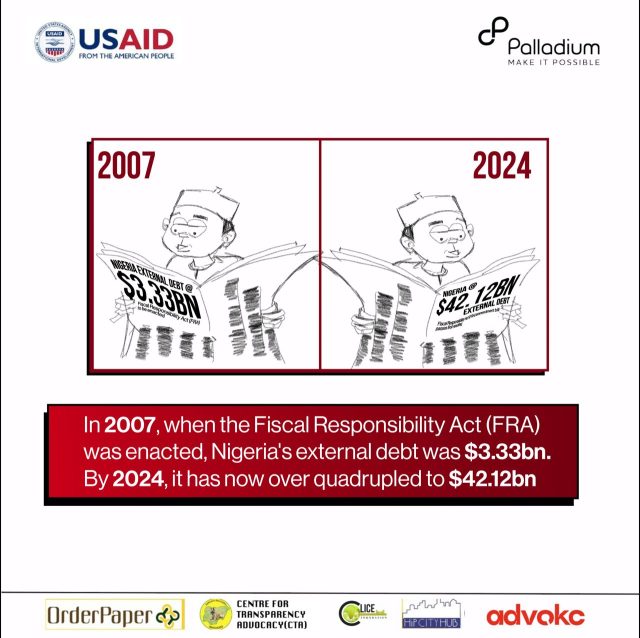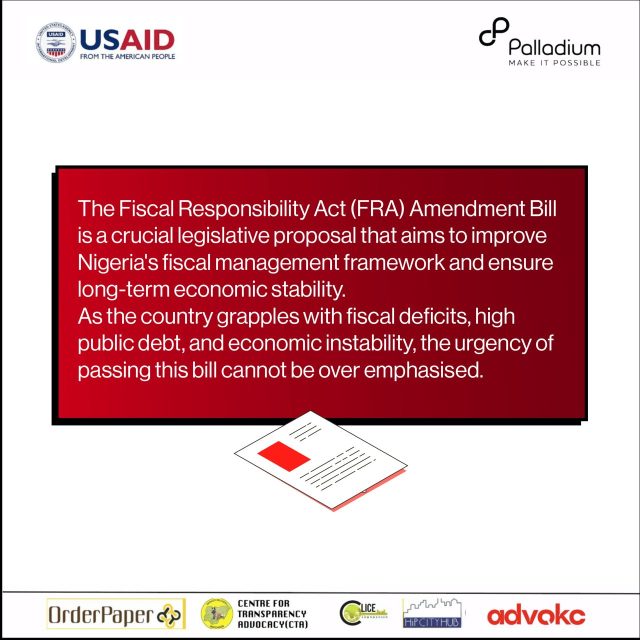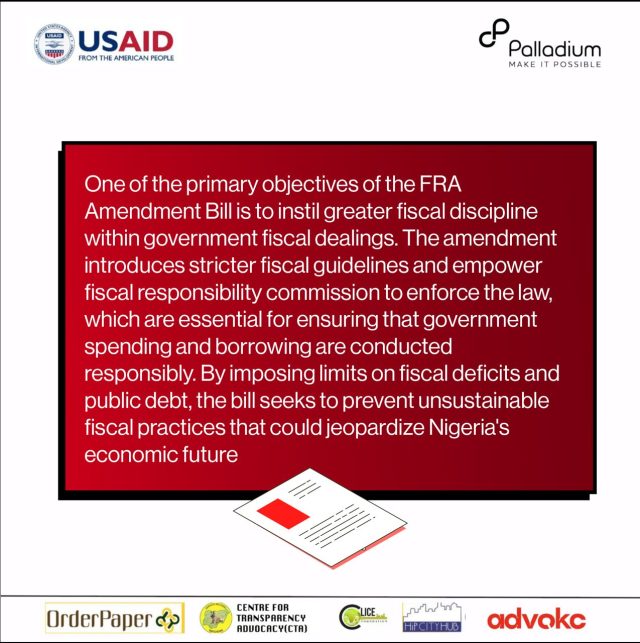With a rise in the country’s debt burden from N457.5 billion ($3.33bn) in 2007 to N121.67 trillion ($42.12bn) in 2024, the National Assembly’s moves to amend the Fiscal Responsibility Act (FRA) is welcome

When the Fiscal Responsibility Act (FRA) was enacted in 2007, Nigeria’s external debt was N457.5 billion ($3.33bn). As of 2024, it has ballooned to N121.67 trillion ($42.12bn). This dramatic increase raises questions about the efficacy of the current legislation, which has gotten a legislative response from the FRA 2007 (repeal and re-enactment) bill 2024. The bill is a crucial legislative proposal to enhance Nigeria’s fiscal management framework and ensure long-term economic stability through increased accountability and transparency of ministries, departments, and parastatals.

An urgent need to empower the FRC to act on its mandate
In 2012, the Fiscal Responsibility Commission (FRC) demanded that NIMASA render audited accounts, but FRC’s demands were blatantly ignored without any consequences. Reflecting on former FCT minister and governor of Kaduna state, Nasir El-Rufai’s words, “What is the purpose of the FRC if it can only bark but not bite?” With a 2024 budget of N1.42bn for a commission whose responsibilities overlap with the Ministry of Finance, House of Representatives, and the RMAFC, the commission must be given the necessary tools and backing to ensure fiscal responsibility within the country’s public finance management.
Enhancing fiscal management
The urgent need to pass this amendment becomes apparent as Nigeria grapples with fiscal deficits, high public debt, and economic instability. Effective public financial management is essential for ensuring government resources are managed efficiently and effectively. The FRA Amendment Bill aims to strengthen Nigeria’s public financial management framework by introducing robust revenue collection, reporting, fund management, and public finance management measures. Enhanced financial management practices will lead to better resource allocation by reducing wastage and improving service delivery to citizens.

Promoting Transparency and Accountability
The amendment bill also promotes transparency and accountability in government finances. Mandating regular and detailed reporting on fiscal performance ensures that government actions are subject to public scrutiny. Greater transparency builds trust in government institutions and enhances the credibility of fiscal policies. One of the primary objectives of the FRA Amendment Bill is to instil greater fiscal discipline within government fiscal dealings. The amendment introduces stricter fiscal guidelines and empowers the Fiscal Responsibility Commission to enforce the law, which ensures that government spending and borrowing are conducted responsibly. The bill seeks to prevent unsustainable fiscal practices that could jeopardise Nigeria’s economic future by imposing limits on fiscal deficits and public debt.
Advocacy and Support
The Growth Initiative for Transparency (GIFT) cluster, consisting of Civil Society Organisations led by OrderPaper Advocacy Initiative and comprising Centre for Transparency Advocacy (CTA), HipCity Innovation Centre, CLICE Foundation, and AdvoKC, supported by the Strengthening Civic Advocacy and Local Engagement (SCALE) project funded by the United States Agency for International Development (USAID), has been on an advocacy drive to address public finance mismanagement, lack of transparency, and debt mismanagement by advocating for the amendment of the Fiscal Responsibility Act (FRA) bill.
A critical juncture for Nigeria and call to action
Nigeria stands at a crossroads, facing a crucial choice between adopting prudent public fiscal management and continuing on an unsustainable path. The FRA bill provides an opportunity to enforce prudent public financial management. Lawmakers must act swiftly to pass this bill, as time is not on Nigeria’s side. Hence, this is another call to remind us that the FRA Amendment Bill is vital for addressing Nigeria’s current fiscal challenges and setting the country on sustainable economic growth. Lawmakers must recognise the importance of this bill and expedite its passage to secure a stable and prosperous future for Nigeria.
This piece was written by Musa Zayyad, Programme Officer; & Habib Sheidu, Project Director of AdvoKC



